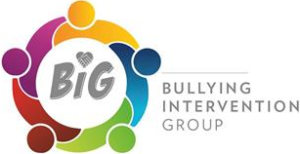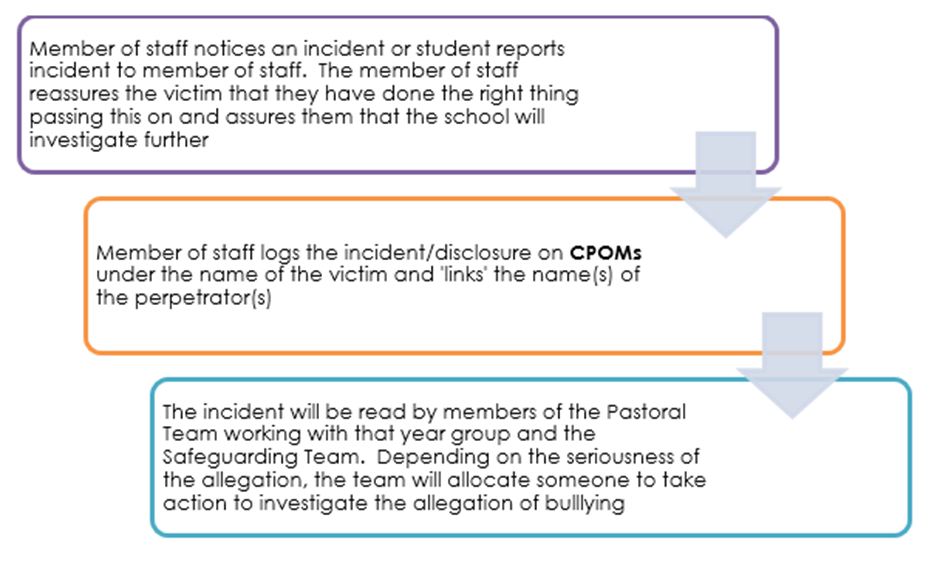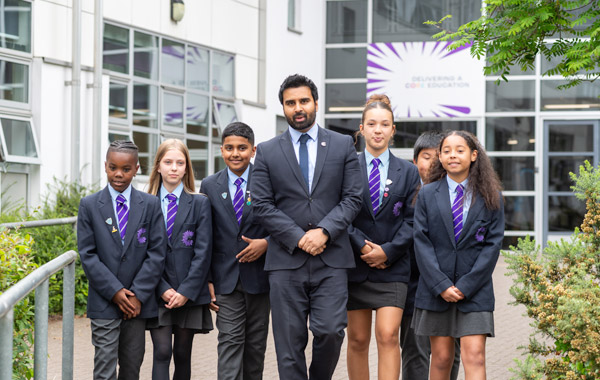Bullying of any kind is unacceptable and will never be tolerated at Arena Academy. At our academy the safety, welfare and wellbeing of all students and staff is a key priority and of paramount importance. We take all incidents of bullying very seriously and strongly believe it is our duty as a whole academy community to take measures to prevent, tackle and resolve any bullying, harassment or discrimination that is reported and that may arise. We actively promote our core value of respect, and work to ensure that ‘difference and diversity’ is celebrated across the whole academy community.
Memberships
We are members of:
- ABA Anti Bullying Alliance: Anti-Bullying Alliance
- BIG Bullying Intervention Group: Bullying Intervention Group | Anti-bullying Experts
- Childnet Digital Leaders Childnet Digital Leaders Programme – online safety peer education



What is bullying
We adopt the ‘Anti-Bullying Alliance’ definition of bullying:
“Bullying is the intentional (physical or emotional) hurting of one person by another, where the relationship involves an imbalance of power. It is usually repetitive or persistent, although some one-off attacks can have a continuing harmful effect on the victim.”
There are different types of bullying:
- Psychological (being excluded from groups and rumours etc.)
- Cyber (abusive text messages, internet messages etc.)
- Verbal (threats, name calling, racism, homophobia etc.)
- Physical (punching, kicking, scratching, pushing, throwing objects at someone etc.)
Bullying invariably undermines self-confidence and initiative and can create a cycle of poor performance and further criticism, potentially causing depression, stress, mental or physical ill-health, with consequent absence from school or work.
Some forms of bullying may break the law and may be reported to the police by the school:
- Violence or assault;
- Theft;
- Repeated harassment or intimidation, e.g. name calling, threats and abusive phone calls, emails or text messages, sexual harassment and peer on peer abuse;
- Hate crimes – any incident which the victim, or anyone else, thinks is based on someone’s prejudice towards them because of their race, religion, sexual orientation, disability or because they are transgender.
Prevention
Preventing bullying behaviours can be possible through a range of proactive measures. At Arena Academy, we look for every opportunity to prevent bullying type behaviours from happening. Some of the actions the school takes to prevent bullying include:
- The issue of bullying is included in the curriculum and classwork e.g. IT, Drama, English.
- Bullying is addressed through the PSHE programme and is aligned with the standards of the PSHE Association. All students have Personal Development lessons once a week.
- The Form Time and Assembly programmes reinforce British Values and the ethos of the school.
- Anti-bullying week is dedicated to raising awareness of bullying and reminding staff and students of their responsibilities to report it.
- Students are not permitted to use their mobile phones around the school. This is partly to prevent cyber-bullying.
- Duty staff have been trained to be vigilant and to watch and listen for any bullying type behaviours, no matter how small.
- Duty points have been carefully considered to ensure there are no ‘dead spaces’ where bullying can take place undisturbed.
- Seating plans in lessons are carefully considered using any relevant information about the relationships between specific pupils.
- Student Bullying ambassadors lead on Anti-Bullying approaches at school
- External speakers raise awareness of issues such as racism and homophobia.
- Posters around the school emphasise the importance of diversity in the school community.
- The Bullying charter outlines the core responsibilities of students at Arena Academy including the responsibility to respect others.
- Working with the wider community such as the police/children’s services where bullying is particularly serious or persistent to send a strong message that bullying is unacceptable within our school.
Reporting Bullying
Students can report bullying of themselves or someone else in the following ways:
- Speaking to their form tutor
- Speaking to their year coordinator
- Speaking to their head of year
- Importantly, students are reminded that they can speak to any member of staff in school
- Speaking to your parent and asking them to pass on the information to the school.
- Use the Whisper system
Parents/Carers can report bullying of their child or someone else’s in the following ways:
- Contacting their child’s Form Tutor
- Contacting their child’s Year Coordinator
- Contacting their child’s Head of Year
- Importantly, parents/carers are reminded that they can speak to any member of staff in school regarding this. Staff will pass this on to the Pastoral Team.


This service may be used by students, staff, parents or carers. You can access Whisper by clicking this link: https://swgfl.org.uk/whisper/cki1/
Investigation and Outcomes
Investigation
The investigation in to the bullying incident(s) will be conducted by the most appropriate member of staff, depending on the severity of the allegation. This may include the Year Coordinator, Head of Year, Assistant Headteacher, Deputy Headteacher or may include external agencies such as the Police.
Any investigation in to alleged bullying will be discreet, sensitive, timely and thorough. The exact timeline of investigations will vary depending on the scenario but will usually include:
- The victims will be talked to along with other witnesses and statements will be taken
- The accused will be talked to, to get their version of events
- Other staff, students and parents will be involved, where needed
- Parents/carers will be kept fully aware
- A record will be placed in all the involved students’ files
- All students will be made aware that such behaviour will not be tolerated
Outcomes
- The student who has been bullied will be offered support if they feel they need it. This may depend on the nature and severity of the incident and may include counselling or in more extreme cases, referral to external agencies such as CAMHS.
- Students who have displayed bullying behaviour will be issued sanctions in line with the school behaviour policy. These sanctions range from reflections to suspensions and even permanent exclusion where it is deemed bullying has been extreme and particularly damaging.
- Parents of those bullied and bullying will be notified of the outcomes of the investigation.
- A ‘restorative’ meeting will be set up to take place as soon as possible. This is the process where both parties get an opportunity to achieve closure through mediation by trained staff and/or students.
Useful links
- Childline
www.childline.org.uk
Free 24hour telephone lines for children and young people: Telephone 0800 1111 - The Children’s Legal Centre
www.childrenslegalcentre.com
Tel: 01206 872466 (Administration/publications)
Tel: 01206 874807 (Education Law & Advocacy Unit)
Education Law Advice Line: 0845 456 6811 - Parentline Plus
www.parentlineplus.org.uk
www.besomeonetotell.org.uk
Tel: 0808 800 2222 - The Anti-Bullying Alliance (ABA)
Founded in 2002 by NSPCC and National Children’s Bureau, the Anti-Bullying Alliance (ABA) brings together over 100 organisations into one network to develop and share good practice across the whole range of bullying issues.
http://www.kidscape.org.uk - Pannone Anti Bullying Blog
David Cook, a solicitor at Pannone, has written a guide for parents on cyberbullying and how to spot it. It talks about how to spot if your child is being cyberbullied, what to do to minimise the chances of it happening and what to do if it does happen. It’s a really informative article, and you can find it here:
http://www.pannone.com/media-centre/blog/cybercrime-blog/what-will-it-take-protect-our-children-cyber-bullying - Counselling Directory
Counselling Directory is a confidential service that encourages those in distress to seek help. The directory contains information on many different types of distress, as well as articles, news, and events.
http://www.counselling-directory.org.uk/bullying.html





